A reader asked a small story, “Fanglin’s new leaves urge Chen’s leaves, and the flow of water makes waves before and after” who wrote these two poems, and how to understand the whole poem.
The beginning of the chapter is clear, these two lines of poems are the hands of Liu Yuxi, a poet in Tang Dynasty, and they are two lines in a song and poem written by him to Bai Juyi. Liu Yuxi and Bai Juyi are the guest and host in this poem, but this poem is also related to their mutual friend Yuan Zhen. Why is this?
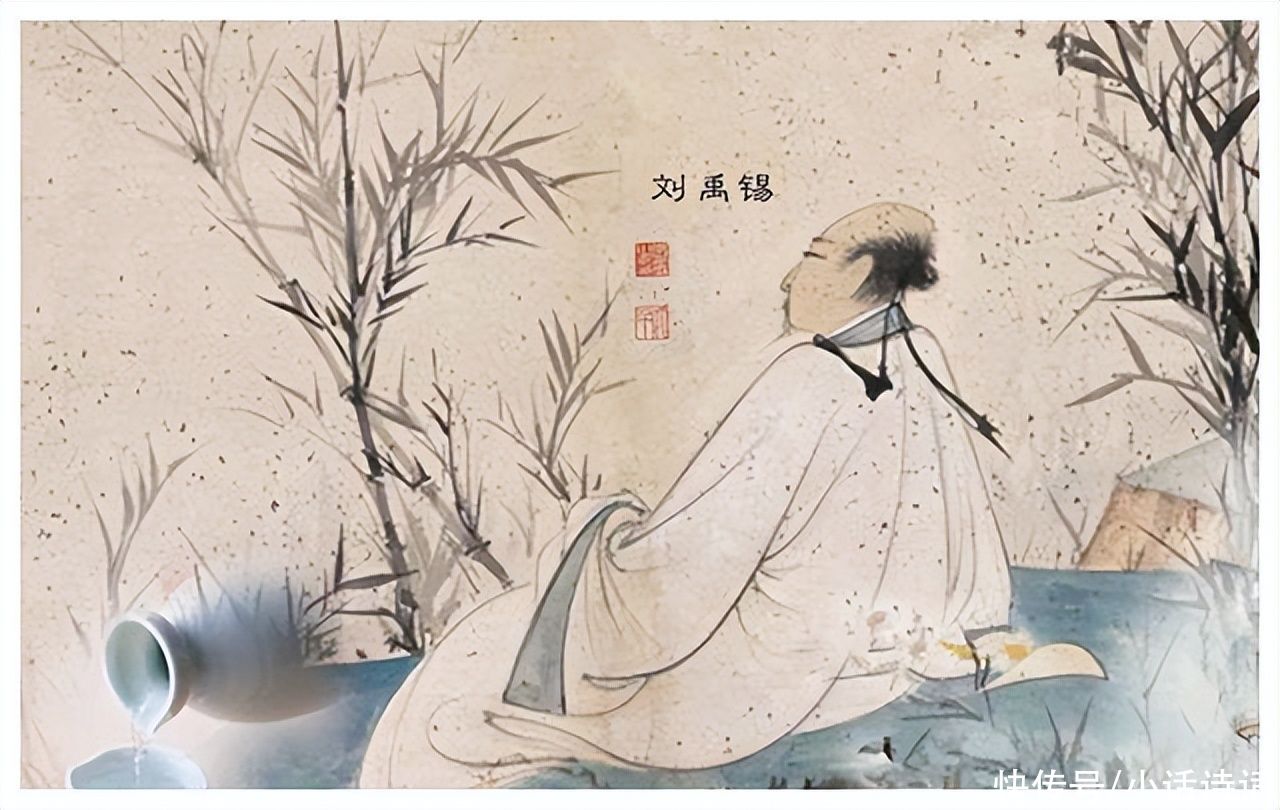
Before interpreting this poem, it is necessary to understand that Liu Yuxi, Bai Juyi, Yuan Zhenzhi relationship between. Liu Yuxi has a wealth of experience in his life, not only in his career, but also because he has a top-notch circle of friends who are “talking and laughing with great Confucianism”, as he said in his “Mingshi Ming” .
Liu Yuxi had many poets and sang in his life. During his lifetime, he was as famous as Bai Juyi. He was called “Liu Bai” by the world, and Bai Juyi called him “Poetry Hero”; ; During his relegation to Jiangxiang, he sang harmony with the poet Yuan Zhen, and he sang more than 60 poems with the famous minister Linghu Chu.
Among them, his singing with Bai Juyi and Yuan Zhen spans a long time. The three of them can be called the iron triangle of the poetry circle in the middle Tang Dynasty, and the poetry singing and harmony between them has also become a good story in the poetry circle, and it is also a beautiful talk in the history of ancient Chinese literature.
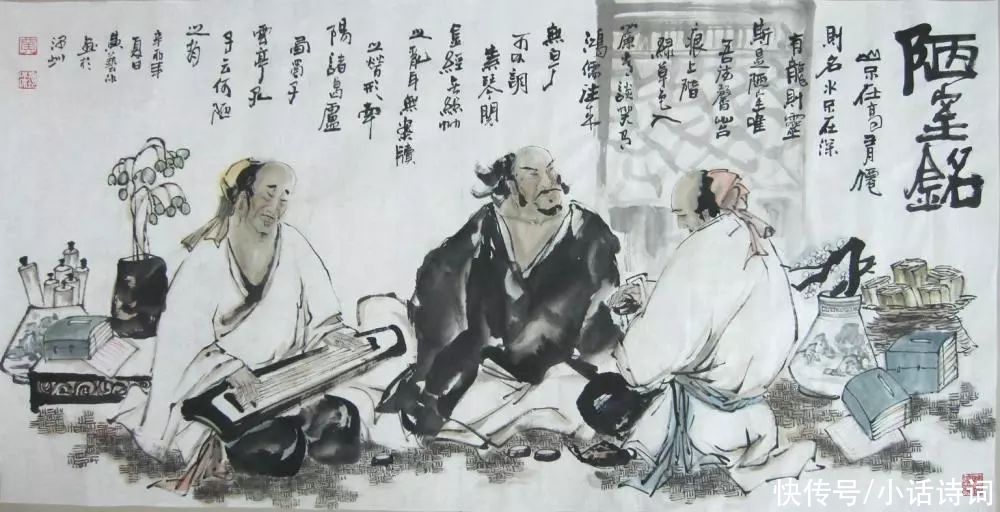
Among them, Liu Yuxi and Bai Juyi sang the earliest, from Yuanhe three years (803) to Huichang In the second year (842), we have been singing and singing for nearly 40 years. In the third year of Yamato (829), Bai Juyi compiled the poems of himself and Liu Yuxi into two volumes of “Liu Bai’s Collection of Songs and Harmonies”, which included a total of 138 poems sung by the two of them.
The reconciliation between Liu Yuxi and Yuan Zhen was a little later than Bai Juyi, about the fifth year of Yuanhe. At that time, Liu Yuxi had been exiled to Langzhou for five years, and Yuan Zhen had just been demoted from the supervisory censor Jiangling scholar Cao joined the army.
The high-frequency period of singing harmony between Liu Yuxi and Yuan Zhen was during this period. The same life encounters and turning of fate made them often encourage each other with morality and integrity. After leaving Jiangxiang, the frequency and popularity of their singing decreased slightly, but they did not stop.
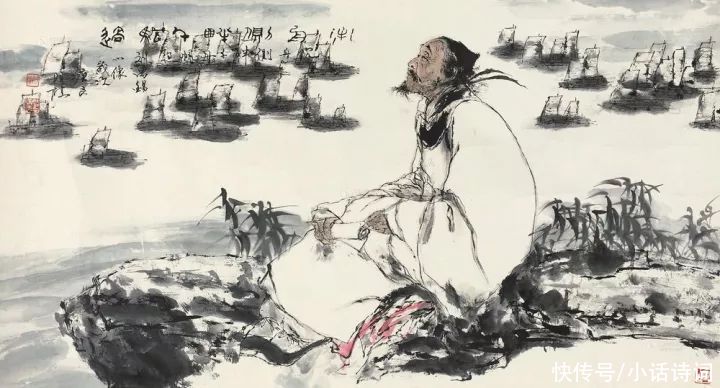
Okay, let’s understand the poetry and singing between the three of them. After the sincere friendship, when I read the poem again, the poetic meaning will be much clearer.
So, when Liu Yuxi heard the news of Yuan Zhen’s death from Bai Juyi’s letters, he was very sad and wrote this poem. The title of the poem is “Lovely Sees the Injury, Dun Poetry, The Three Gentlemen, and the Three Gentlemen All Have Deep Reasons, It’s Poetry to Send”, the original poem is as follows:
Yinjun sighs the passing quatrains, which makes me sad and play short songs.
There are few deceased deceased people in the world, but there are many sacrifices in concentration.
The new leaves of Fanglin urge the old leaves, and the flowing water makes waves before and after.
I have hated the same from all ages to the present.
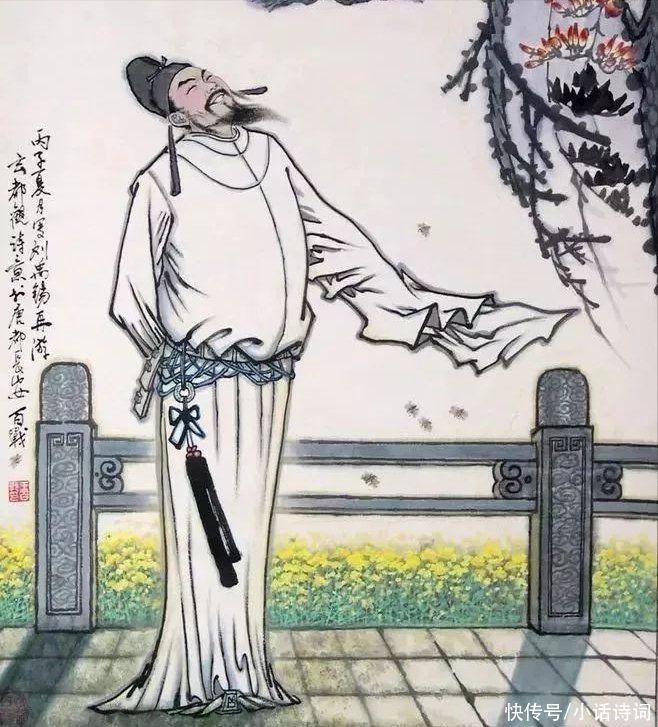
This poem is not only a poem to sing with Bai Juyi, but also a mourning for Yuan Zhen The poems of et al. The main idea of the poem is to say: I recited the two quatrains you sent me to mourn the deceased friend, which made me write this short song with infinite emotion in my heart. I am amazed that there are fewer and fewer old friends in the world, but I just feel that there are more and more sacrifices in the anthology. The new leaves in the forest are constantly urging the old leaves to be replaced, and the front waves in the flowing water always give way to the back waves. From ancient times to the present, everyone has the regret of mourning the deceased. What if they shed tears for their deceased friends?
The first couplet wrote that Liu Yuxi heard the news of Yuan Zhen’s death from two quatrains sent by Bai Juyi. Bai Juyi wrote in the first poem: “And I lost my companion and left the elk body empty. I should only go down to Songluo, and be a traveler alone.” The autumn wind is full of tears, and there are many deceased people under the spring.”
Jin Lian wrote that when friends left the world one by one, the number of sacrifices naturally increased, so that there were the most sacrifices in the collection, and the wounds caused by the death of friends The pain and helplessness, the feeling of loneliness is beyond words.
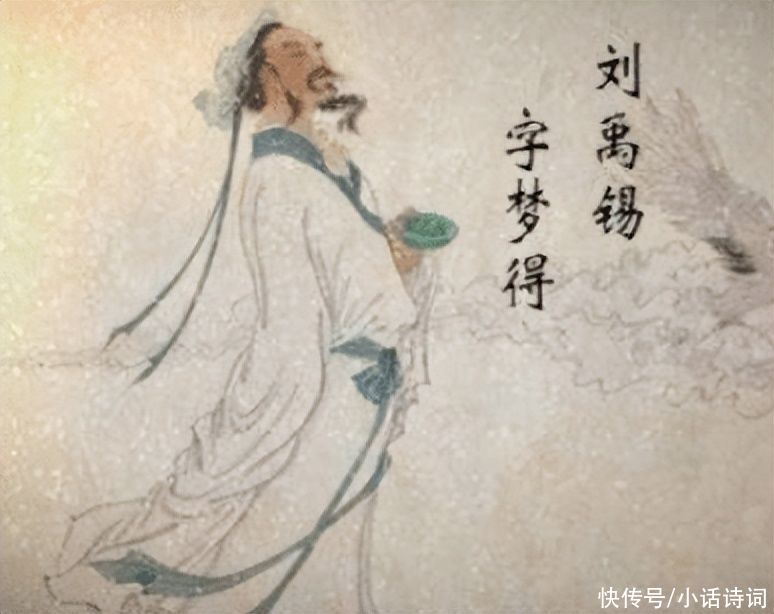
In Bai Juyi’s poems, the sadness over the death of a friend is so intense that it almost sobs. According to common sense, Liu Yuxi’s poems should naturally echo the meaning of the title. Sadness must be the theme melody of singing harmony poems, but if only sadness is the main line, it will be confused with ordinary mourning works and fail to jump out of the tone of Bai Juyi’s original singing. .
Therefore, in the neck couplet, Liu Yuxi chose words and sentences like this, and planned the layout of the article: Fanglin’s new leaves urge the old leaves, and the flowing water makes the waves before and after. These two sentences are to the effect: If there is no withering of old leaves, how can new leaves grow? In the same way, if there is no respite from the front wave, there will be no turbulence of the back wave.
Liu Yuxi’s seemingly landscape-like brush and ink contain deep-seated philosophical speculations of metabolism and endless life, and his philosophical thinking surpasses Bai Juyi’s original works. The neck couplet can be regarded as the essence of the whole poem, and it is the finishing touch of the whole poem. These two sentences suddenly enhance the realm of the whole poem.
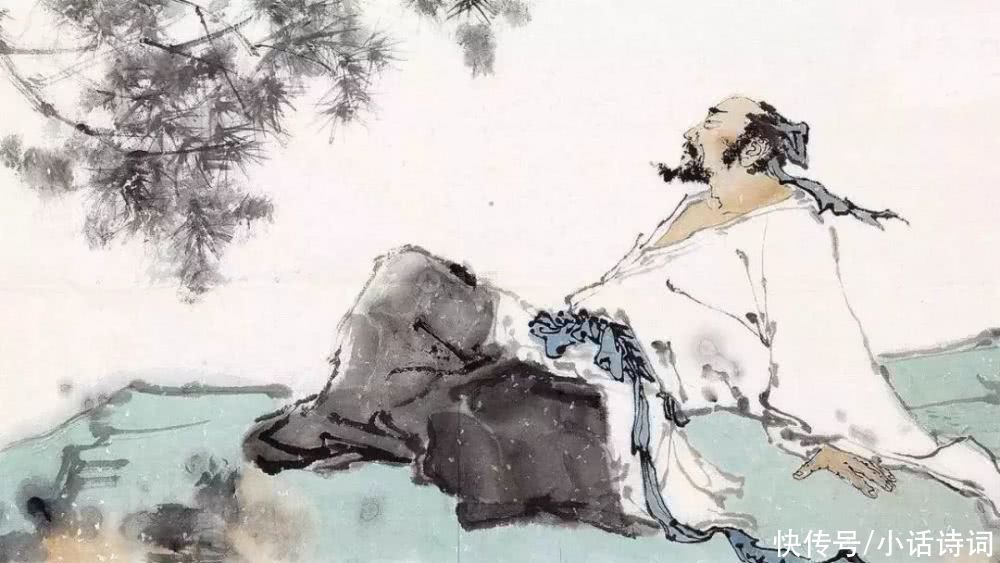
These two sentences are also sung through the ages The famous sentence can also best reflect Liu Yuxi’s philosophical thoughts. If only from the literal point of view, the poet’s original meaning is that in spring, the newly grown leaves of the lush woods are urging the replacement of old leaves and old leaves; in the river, the rushing back waves push In the poem, Chen Ye and Qianbo refer to Yuan Zhen and other deceased friends, and they can also refer to old things. And Xinye , Houbo is a metaphor for a rookie in the world of poetry, and it can also refer to new things.
In Liu Yuxi’s view, the emergence of new things and the demise of old things have its objective inevitability, which is not based on human will. This is the inevitable law of the development of things. Since the law does not depend on human will, people must conform to and use the law.
Liu Yuxi felt the death of his friend, In addition to grief, what he thought about was to respect the deceased, be kind to the living, and that the living should cherish life and live well.
So Liu Yuxi thought from the perspective of life and came to the conclusion Such a philosophy of life: without old leaves, there will be no new leaves, without previous waves, there will be no back waves, new and old things are not absolutely opposite, not unrelated.
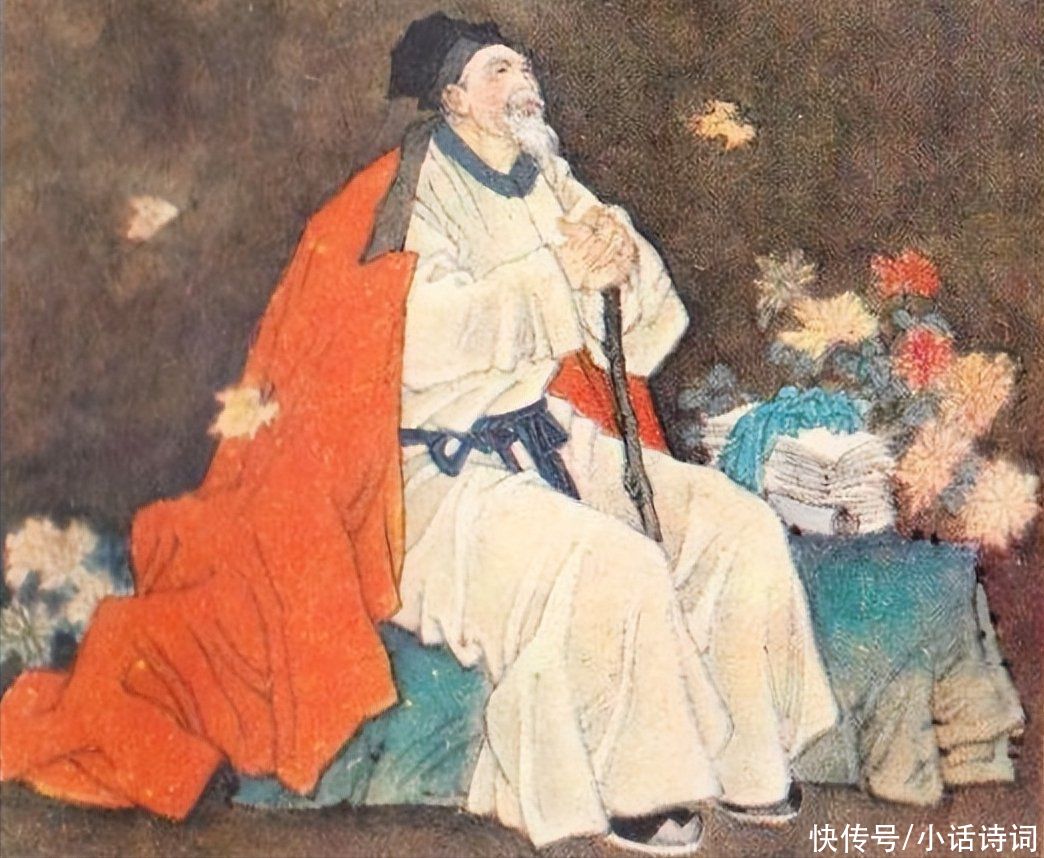
New things contain the excellent ingredients of old things, and old things breed some genes of new things, old and new are dialectically unified It can also be seen that Liu Yuxi already has dialectical thoughts, which allude to the law of unity of opposites.These two poems can also show Liu Yuxi’s optimistic and open-minded outlook on life after recognizing the law of the development of things.
This poem by Liu Yuxi in reply to Bai Juyi realizes the fusion of poetic sentiment and philosophy, and reflects the extraordinary mind, feelings and philosophical cognition in it.Such cognition is not It flashes occasionally, but runs through, like a grass snake and gray line, extending through the whole process of his and Bai Juyi’s singing and reconciliation, which has reached a height of cognition that is difficult for future generations to reach.
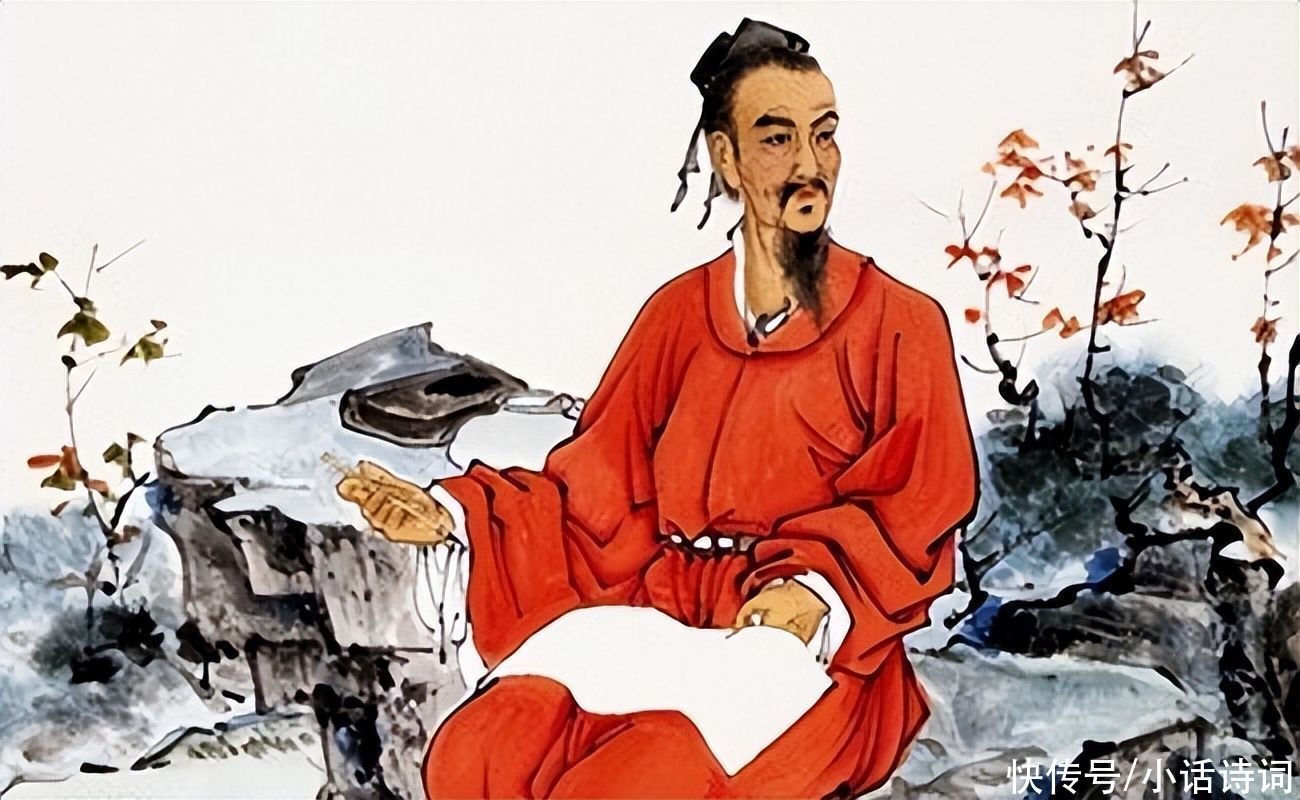
Later, Liu Yuxi and Bai Juyi met again in Luoyang in their later years, and their singing and singing reached another peak. The direct driving force for the formation of the influential “Liu Bai Poetry Crowd” is also a cultural event in the poetry circle of the Middle Tang Dynasty.
As the leading figures of this creative group, Liu Yuxi and Bai Juyi are the protagonists of the “Luoyang Wenjiuhui” envied by future generations, and their singing and poetry are also outstanding. Among them, the most artistic vitality and influential achievements.